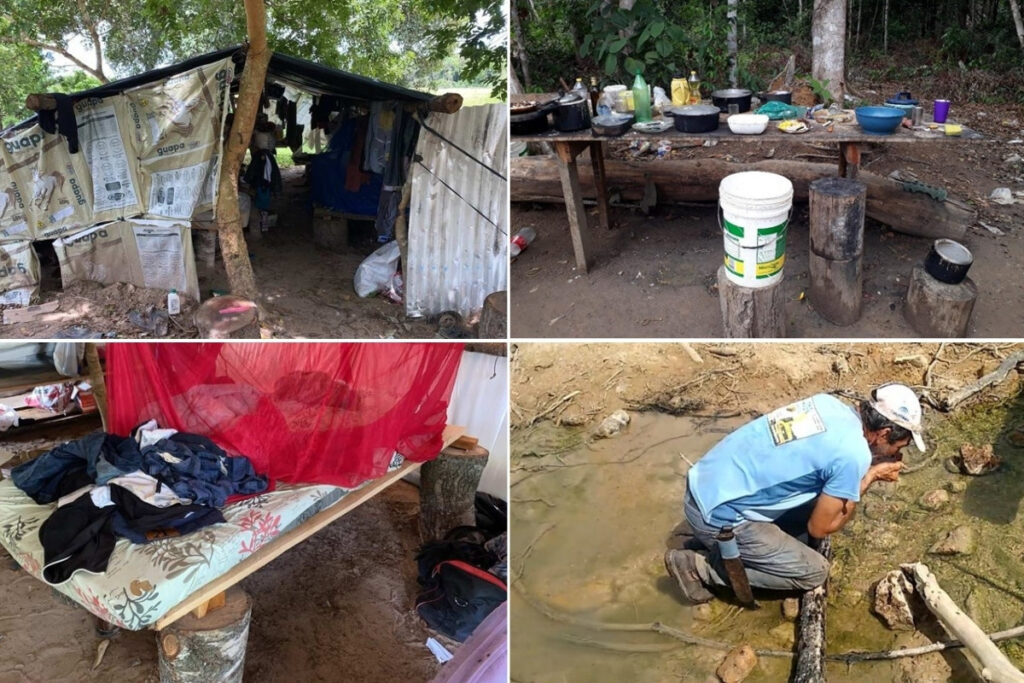CATTLE RANCHERS FINED for subjecting workers to conditions analogous to slavery on cattle farms are part of the supply chain of Brazil’s largest meatpacking plants: this is revealed by new cases identified by Repórter Brasil.
The relationships between eight ranchers caught using slave labor between 2018 and 2023 and industry giants are detailed in the report “Under the Radar – How cattle ranchers caught employing slave labor are part of the supply chains of Brazil’s largest meatpacking companies,” published this Thursday (9).
In addition to the ranchers fined for slave labor, two other producers were identified for raising cattle illegally within the Krikati Indigenous Land in Maranhão. Among the ten producers mentioned in the report, three have also been fined or have faced embargoes for illegal deforestation.
By analyzing animal transit records from 2018 to 2025, it was possible to identify that cattle from these producers were transferred to farms supplying meatpacking plants or sent directly to slaughterhouses such as JBS, Minerva, Marfrig, and Frigol, the four largest in Brazil, and others with regional operations, such as Masterboi, Rio Maria, Pantanal, and Frigosaj.
The investigation was conducted in partnership with Climate Rights International (CRI), an international organization that investigates environmental and human rights violations. In its report, also published this Thursday (9), CRI highlights how major global fashion and footwear brands are linked, through their leather supply chains, to the meatpacking plants mentioned in Repórter Brasil‘s investigation.
Slave Labor in the Sector
The concept of “condition analogous to slavery” is described in Article 149 of Brazil’s Criminal Code, which states that it is a crime “to reduce a person to a condition analogous to slavery by subjecting them to forced labor, exhaustive working hours or degrading working conditions or by restricting, by any means, their movement due to debt owed to the employer or agent.”
Workers who carry out tasks such as clearing pastures for cattle breeding and later constructing fences and corrals are exposed to degrading conditions and are often subjected to slave labor. This is the assessment of Maria Gabriela Costa Grandi, a prosecutor from the MPT (Labor Prosecutor’s Office) in Pará.
In most cases investigated by Repórter Brasil, slave labor victims slept in tents in the middle of the forest and had no access to drinking
